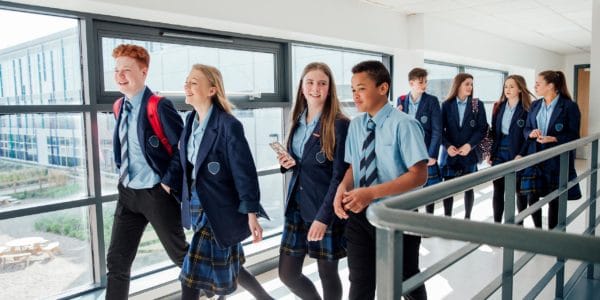Many childcare providers had weak finances going into the crisis. The loss of income from parent-paid fees since March will mean that many providers face a tough time keeping their doors open.
A total loss of income from parent fees would have put a quarter of private-sector nurseries at risk of running a significant deficit during lockdown, with less than £4 of income for every £5 of costs. That’s more than double the number which were running a significant deficit prior to the pandemic and is despite government support through continued public funding and the substantial furlough and self-employment schemes.
While childcare settings were allowed to open to all children from the start of June, by the start of summer holidays demand for childcare places remained 70% below pre-crisis levels. There is a risk that some childcare providers will close, creating a shortage of places once demand returns to “normal” levels.
These are among the findings of new research, funded by the Nuffield Foundation and carried out by a team of researchers at the Institute for Fiscal Studies, the University of Birmingham, Frontier Economics, Coram Family and Childcare, and the University of Surrey. They analyse how childcare providers’ finances are likely to have been affected by the lockdown, and how they might look going forward.
The research also finds that:
- Continued funding for the free entitlement during the lockdown means that providers that rely mostly on public funding have so far seen their income largely protected. Funding will be reassessed in 2021 based on January pupil numbers, risking a loss of capacity if demand is sluggish at the start of the year before picking up over the spring and summer terms.
- For providers with income from parent fees, support through the furlough scheme and self-employment grants was a significant help but provided far from full protection. We estimate that the median furlough payment was worth 55p for every £1 of lost fee income, and self-employment grants covered 64% of baseline fee income at the median.
- Many childminders are likely to have been hard-hit by falls in their income from parent fees. Even if all childminders received self-employment grants, the total loss of parent fees could see an additional almost 30% of childminders now earning less than £4 of income for every £5 of costs (counting what they usually pay themselves in the costs). In practice, many childminders will see their earnings take a hit, which could jeopardise their ability or desire to stay in the market.
- Even by mid-July, after lockdown ended, childcare use was only around 30% of its pre-crisis level. Over the coming year, the key question will be how much – and how quickly – demand for childcare recovers. Assuming no further government support, we estimate that, for every 5-percentage point drop in fee income from pre-crisis levels, an additional 3-4% of settings risk tipping into significant deficit.
The research also examines the case for government support for the childcare market, and discusses potential interventions. It concludes that:
- Before the crisis, the childcare market featured significant turnover and there was some spare capacity at around 70% of providers, suggesting that the market is mature and could potentially adjust without government support to rises and falls in demand, at least at the national level. However, there may be risks around losing capacity amongst providers who are particularly reliant on fee income, such as childminders and those catering for under 2s.
- Since the lockdown had the worst effects on providers that are mostly funded by private fees, raising the free entitlement funding rate will not be the most efficient way to target support to otherwise viable businesses that tipped into a temporary deficit as a result of the pandemic. Of course, government might have other priorities in delivering support to the sector.
Christine Farquharson, Senior Research Economist at the IFS, said: “Childcare closures during the lockdown saw providers’ incomes take a big hit. While government support cushioned the blow, especially for settings mostly reliant on public income, we estimate that half of childcare providers were at risk of earning less than £4 of income for every £5 of cost during the lockdown if they took in no fees from parents. The lockdown hit providers of all sizes and in all areas, but childminders – who entered the crisis with weaker finances on average – were more exposed than other types of settings.”
Dr Claire Crawford, Reader in Economics at the University of Birmingham and Research Fellow at the IFS, said: “Even before the crisis, almost three in ten childcare settings were running a significant deficit, and there was an ongoing debate about whether the funding rate for free entitlement places was sufficient to cover providers’ costs. By squeezing income from parent fees, COVID-19 has magnified these concerns. However, our research shows that the providers most at risk of going into significant deficit – and hence potentially most at risk of exiting the market – are those that do not rely on public funding. While the government might have good reason to prioritise supporting providers of free childcare hours, doing so may not be the best way to secure the capacity provided by otherwise viable businesses that tipped into a temporary deficit as a result of the pandemic.”
High-quality, affordable childcare should be available to all families and is especially important as more parents begin to return to work. The COVID-19 crisis has exacerbated existing issues within the childcare sector, with some settings now at risk of closure. Childcare providers play a crucial role in the well-being and education of young children, helping to tackle the disadvantage gap before children enter primary school. This report sets out options for effective government intervention to support the sector.”Josh Hillman, Director of Education at the Nuffield Foundation


















































